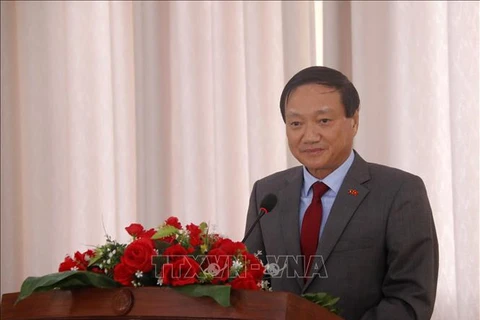 Many of the vegetables on sale at Vientiane markets are imported from neighbouring countries. (Photo: vientianetimes.la)
Many of the vegetables on sale at Vientiane markets are imported from neighbouring countries. (Photo: vientianetimes.la) Vientiane (VNA) – The Lao Ministry of Agriculture and Forestry has proposed a ban on the import of certain vegetables and other agricultural products, in a bid to boost the cultivation of these crops in the country while also tackling the problem of inflation, Vientiane Times has reported.
Minister of Agriculture and Forestry Dr Phet Phomphiphak proposed the ban at a recent meeting of government officials and private sector representatives.
The recommended list of vegetables includes white cabbage, cauliflower, onions, garlic, tomatoes, bell peppers, potatoes, carrots and beetroot.
The import of some types of pork, beef and fish is also suggested to be banned, except for premium grade meat, lamb and ostrich needed by restaurants and hotels.
Seafood can be imported but should be strictly regulated in line with set quotas and time periods, Dr Phet said.
He noted that local farmers can produce about 6.53 million tonnes of rice, vegetables and other agricultural produce annually. This figure comprises 3.72 tonnes of rice, 2.31 million tonnes of vegetables and cash crops, and 507,644 tonnes of meat, fish and eggs. These quantities enable average annual per capita consumption of 68.2 kilograms.
The combined value of imports and exports exceeded 1 billion USD in July. Exports were valued at 429 million USD, while imports were estimated at 595 USD million, resulting in a trade deficit of 166 million USD.
The government is encouraging farmers and producers to supply more goods to the domestic market and to produce more for export, as this will bring in much needed foreign currency and help reduce high foreign exchange rates.
The government is making a concerted effort to step up agricultural production, with the aim of boosting crop yields and exports so that fewer agricultural imports are required./.






















